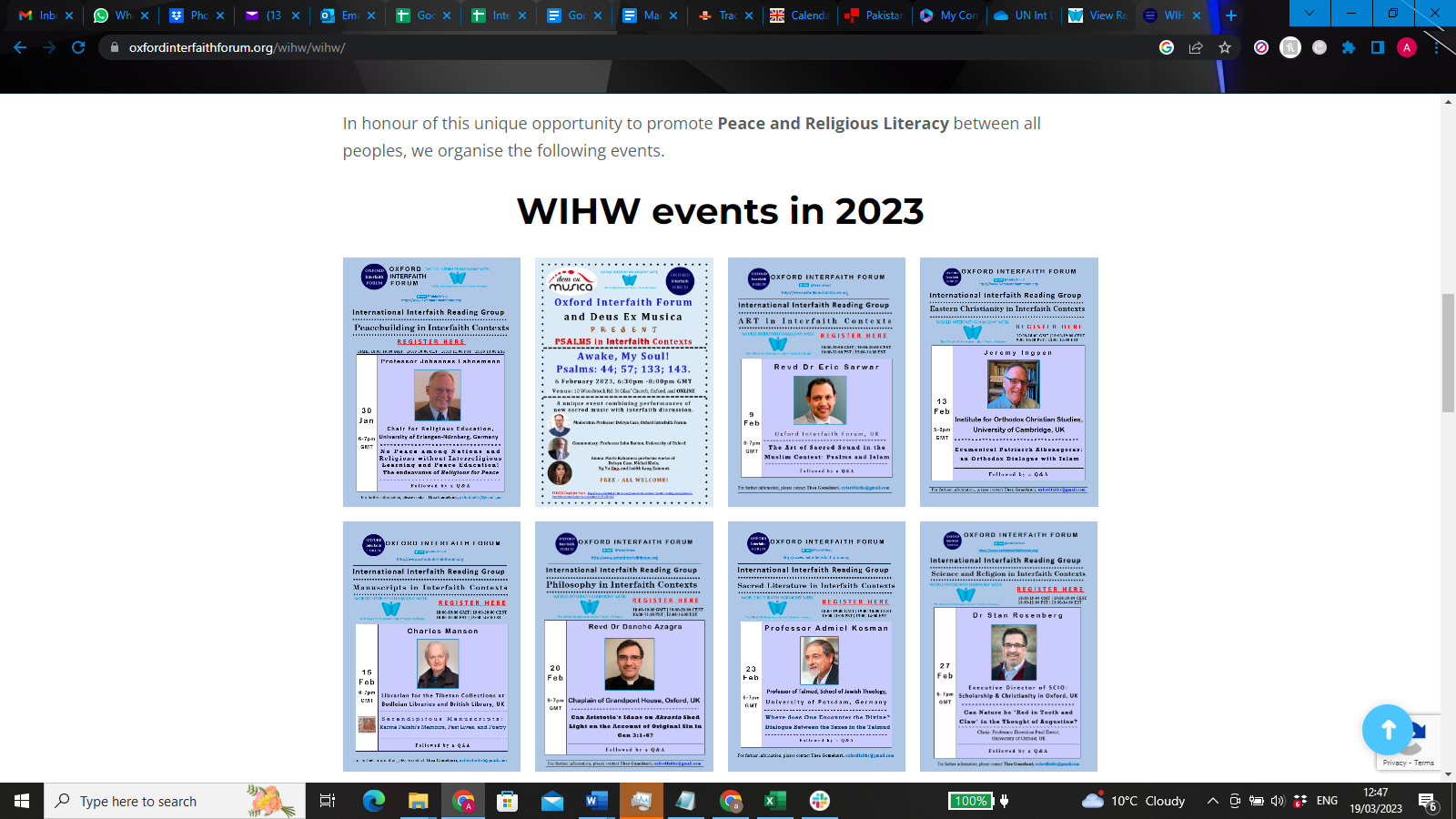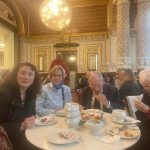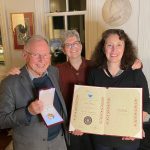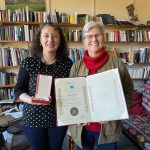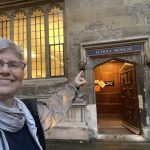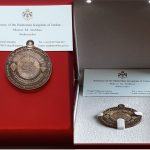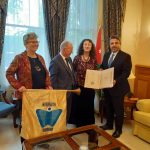Joint Third Prize Winner 2023
Prize Giving
Peace and Religious Literacy – https://www.oxfordinterfaithforum.org/wihw/wihw/
Report 25 – No Peace Among Nations and Religions without Interreligious Learning and Peace Education!
https://worldinterfaithharmonyweek.com/view-reports/?report=72958
Report 37 – Interfaith Music as Harmonious Sound: PSALMS in Interfaith Contexts
https://worldinterfaithharmonyweek.com/view-reports/?report=73198
Report 38 – The Art of Sacred Sound in the Muslim Context: Psalms and Islam
https://worldinterfaithharmonyweek.com/view-reports/?report=73204
Report 39 – An Orthodox Dialogue with Islam: Ecumenical Patriarch Athenagoras
https://worldinterfaithharmonyweek.com/view-reports/?report=73208
Report 40 – Serendipitous Manuscripts: Karma Pakshi’s Memoirs, Past Lives, and Poetry
https://worldinterfaithharmonyweek.com/view-reports/?report=73210
Report 42 – Where does One Encounter the Divine? Dialogue Between the Sexes in the Talmud
https://worldinterfaithharmonyweek.com/view-reports/?report=73214
Report 84 – Interfaith Conversation with Science: Can Nature be ‘Red in tooth and Claw’ in the Thought of Augustine?
https://worldinterfaithharmonyweek.com/view-reports/?report=73710
Report 85 – Interfaith Conversation: Can Aristotle’s Ideas on Akrasia Shed Light on the Account of Original Sin
https://worldinterfaithharmonyweek.com/view-reports/?report=73713
8 lectures and seminars organised by the Oxford Interfaith Forum in honour of WIHW 2023.
We opened the celebration of the WIHW by a joint event focused in Peacebuilding and Religious Education. This was the first transatlantic collaboration between the Oxford Interfaith Forum (UK) and the Academy for Judaic, Christian, and Islamic Studies (USA) .
The next event used live performances of new sacred music as a springboard for conversation about Scripture and faith. Performed by acclaimed violinist Emma-Marie Kabanova, this interactive session featured new psalm-inspired works written by an international collection of Jewish and Christian composers.
The 3rd seminar focused on ART and Music. Art can help to break the misconceptions of Islamophobia and resolve the Western myth of the religious Other, including our Muslim neighbors. Islamic art is not monolithic; nevertheless, vision-centric calligraphic art eclipses the vocal-centric art of pietistic Islam in public. The seminar discussed the voice-centric soundscape of Muslim society and provide a common ground for scriptural engagement through the book of Psalms in a Muslim context.
The 4th event was a reading of recently translated book about Ecumenical Patriarch and his dialogue with Islam. Following reading we had an open discussion. The recent publication of the English translation of Olivier Clément’s Dialogues with Patriarch Athenagoras (Holy Cross Orthodox Press, 2022) brings one of Clément’s major works to the English-language reader.
The fifth session focused on material culture of manuscripts and their role in promoting interfaith harmony. We invited the Curator of Tibetan Collections at the Bodleian Library to speak about the interactions between Tibetan Buddists and two Mongol Khans.
Seminar 6 read a passage in the Talmud and discussed its implication in interfaith contexts. Professor Admiel Kosman who is a full Professor of Talmud at the University of Potsdam, led us to read selected passages.
Event 7 looked at whether a Christian account of evil can accept an understanding of nature as ‘red in tooth and claw’ from the outset? At the core of Augustine’s theology, and the theological systems that shape the Augustinian tradition, is an approach to evil based on privation theory. Privation theory asserts a primal purity and a Fall subsequently corroding the originate state. On the face of it, such an approach would seem to be the cause of decay, cataclysm, animal predation, and pain in the natural world.
The final event saw Revd Dr Dancho Azagra, Chaplain of Grandpont House, Oxford, discuss several psychological implications of the account of original sin in Gen 3:1-6 applying some ideas employed by Aristotle in his description of akrasia. In particular, the concept of ēthos to study the original inner harmony of human nature, and that of prohairesis to discuss the possibility of sin and the nature of the temptation leading to original sin. The respondent was a Muslim scholar, Professor Syed Atif Rizwan, Assistant Professor.
